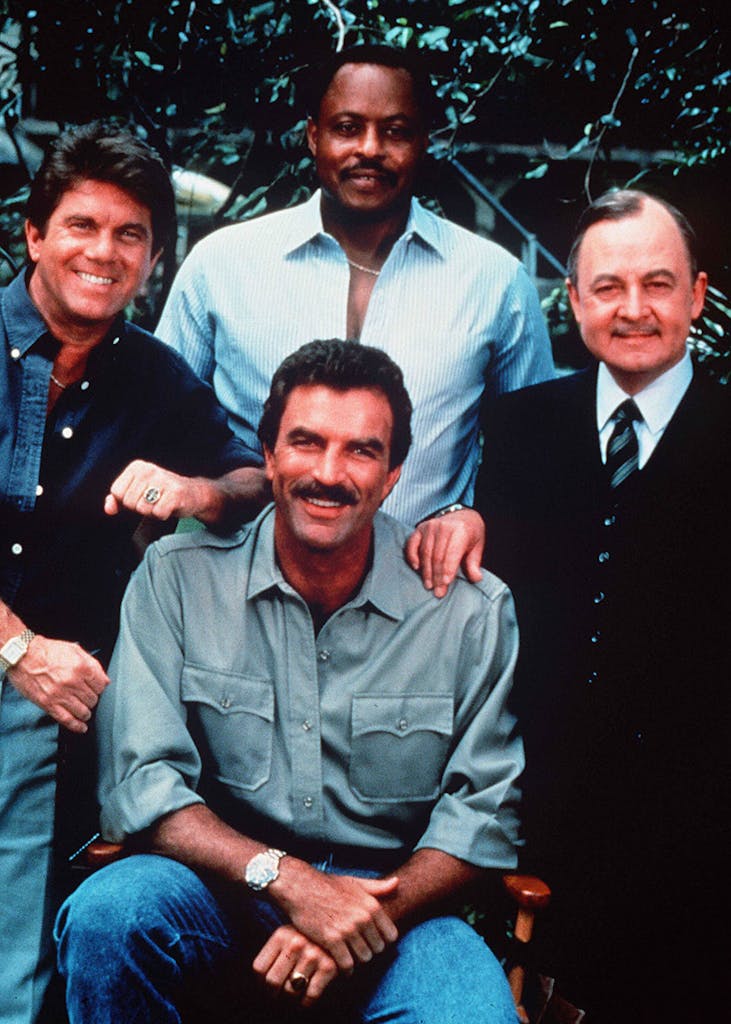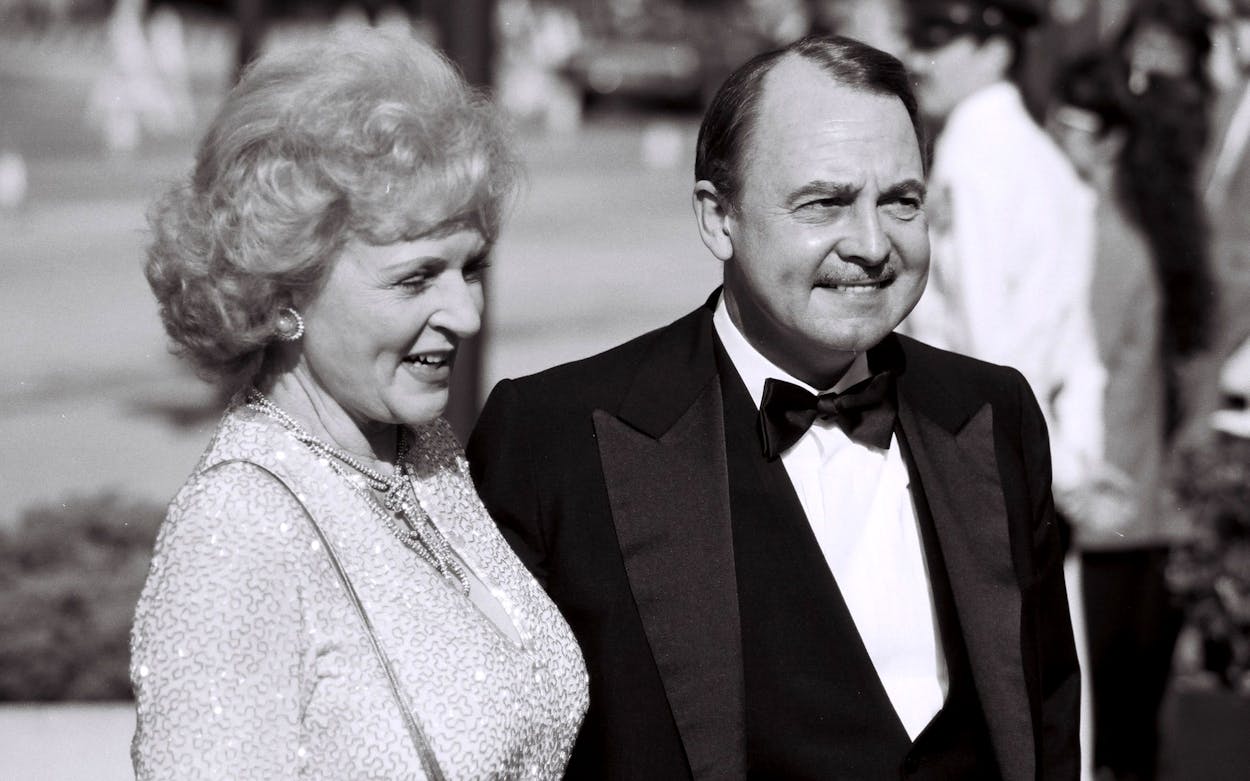Like a lot of us now in our forties, I grew up on a steady diet of Magnum P.I., starring that mustachioed Adonis Tom Selleck, with whom my mother was obsessed. (Three-and-a-half decades later, she’s still obsessed. There is a reason Blue Bloods has been running for eight seasons.) As a pre-adolescent wrestling with some very confusing feelings for other boys, I suppose the hirsute and swaggering Selleck—who elevated the arbitrary removal of one’s shirt to an art form, nearly fifteen years before anyone even knew Matthew McConaughey’s name—should have been my own point of entry for the show, too. Yet that wasn’t quite the case. Selleck’s Thomas Magnum always struck me as a little too good-looking, too blessed by good fortune (seriously, he gets to live in Hawaii? For free? And drive a Ferrari?). He reminded me, to be honest, of those intimidating boys in my grade school who thrived on the playground (I didn’t), and who were so casual and confident in their ability to outshine the rest of us.
For me, Magnum P.I. instead hinged on the title character’s frenemy, Jonathan Qualey Higgins III, an ex–British army officer who had been hired as the stick-up-his-butt caretaker of the estate where Magnum lived in Oahu. With his army khakis that appeared to be recycled from the costume department of The Bridge on the River Kwai and his riding crop with which he commanded two Dobermans, Higgins was set up to be Magnum’s stooge—the short, supercilious prig whom Magnum repeatedly outsmarted, and in whose reflection our hero could shine still brighter. But as played by John Hillerman with a genuine sense of dignity and steely righteousness, Higgins was no joke; you loved him because he truly believed in a classical world of order and rules-following, and he wasn’t about to cede all of that tradition to a handsome young firecracker in a Hawaiian shirt. And every so often, Higgins would a deliver a barb that succeeded in cutting Magnum down to size. The smirk from Hillerman that would invariably follow was a thing of beauty and triumph—and a gentle exhortation to those of us suffering through grade school that the golden boys weren’t always going to be the ones who glowed.
Until he died last Thursday at the age of 84 in Houston, I confess that I had no idea that Hillerman—who was born in Denison, majored in journalism at the University of Texas at Austin, and then retired back to Texas in 1999—wasn’t actually British. That’s one definition of a great performance, when an actor so wholly inhabits a part that viewers assume he must just be playing a variation of himself. (In real life, Hillerman reportedly spoke with a faint Texas drawl—akin to his character Howard Johnson in Blazing Saddles.) Hillerman’s synonymy with Higgins may also be the reason why, after Magnum P.I. ended its eight-season run in 1988, he never found another role even remotely worthy of his skill.

If Magnum P.I. was the obvious career apex—the part of Higgins earned Hillerman four Emmy nominations and one statue—his earlier work shouldn’t be forgotten. After a stint in the Air Force in Fort Worth, he made his way to New York and then Washington, where he worked onstage, before decamping to Hollywood and finding steady work in movies and television. With his high forehead and pallid complexion, he looked like the sort of guy you walk past a hundred times a day—a schoolteacher, a psychiatrist, a hotel manager. He played all of those professions, in fact, in The Last Picture Show, The Naked Ape, and What’s Up, Doc?, respectively. Like most journeyman character actors, he rarely got enough screen time to shape an indelible character, but he served the role and the work, never calling undue attention to himself. And at least twice he got to shine in supporting roles in classic movies: His Russ Yelburton in Chinatown is a marvelous portrait of civic amorality, the ultimate bureaucrat-willing-to-look-the-other-way; and in Peter Bogdanovich’s glorious Paper Moon, Hillerman lends a note of appealing menace to the high-spirited proceedings, playing the double role of a bootlegger and his twin brother, a corrupt sheriff.
Still, it was the role of Higgins that Hillerman seemed born to play—and I spent much of the weekend reading old interviews with the actor, trying to discern some sort of personal connection for him to the part. I was struck that as a teenager he would sneak away from home to attend the opera in Dallas; struck, too, by the fact he never married. (“I’m a dyed-in-the-wool bachelor,” he told a UPI reporter in the mid-seventies—in an article that also said he had been dating an unnamed actress for the previous nine years, but that they didn’t live together.) Certainly, any opera-geek teenager in Texas would have understood the mind-set of the perennial outsider, though just how well he understood that mind-set is a matter of (perhaps tactless) speculation. Regardless, I do think it’s worth nothing that, intentionally or not, Hillerman brought a note of drag camp hauteur to Higgins, a costumed figure willing to let you laugh at him, until that inevitable moment when he bared his teeth and snapped. At the very least, it was a performance that spoke volumes to at least one gay kid, who tuned in dutifully each Thursday at eight, hoping that this would be one of the episodes where Magnum got knocked down a peg. Well played, John Hillerman. Well played.







